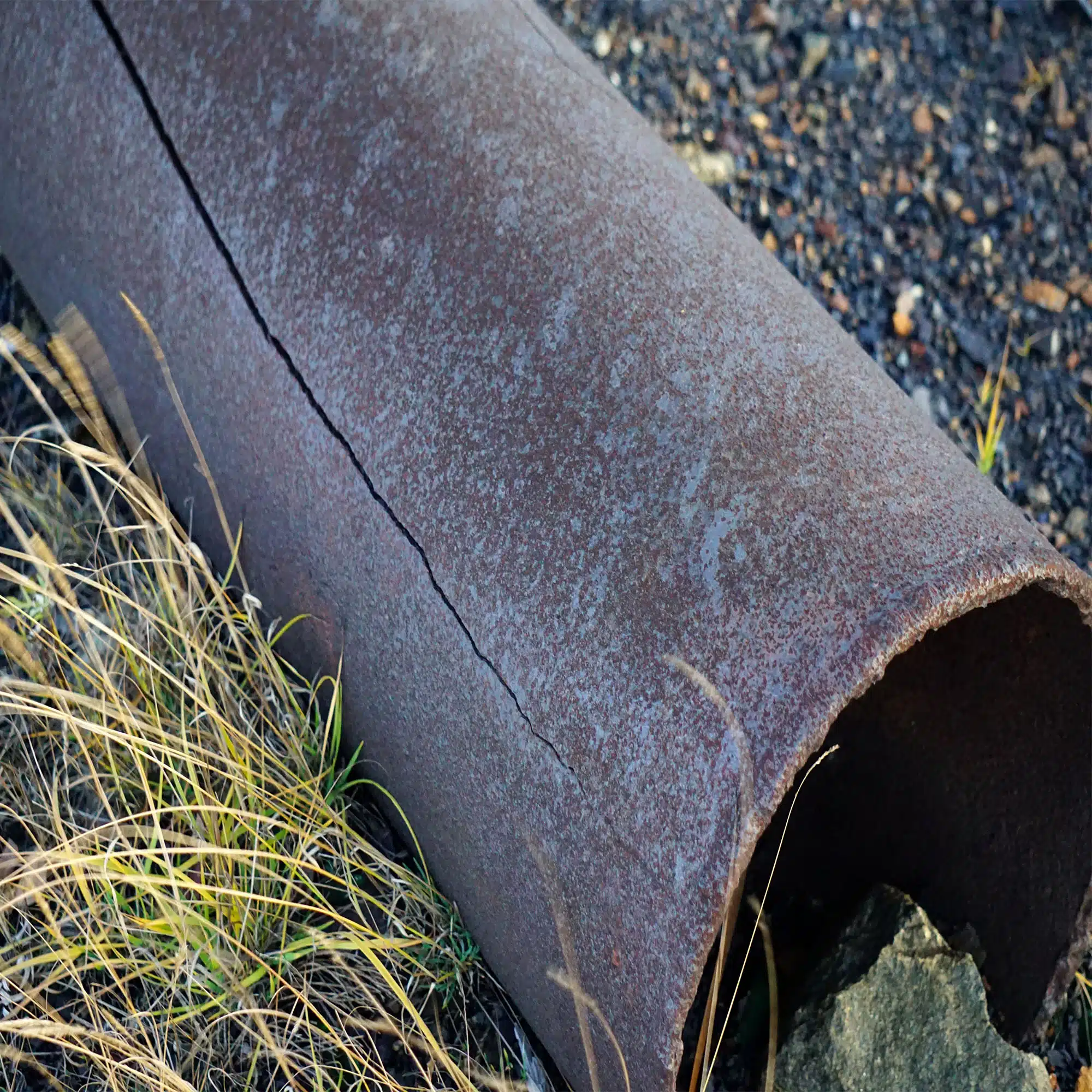Stress Corrosion Cracking
 Stress corrosion cracking, abbrevated as \(SCC\), is a material degradation that occurs when a material, typically a metal, is exposed to a corrosive environment while also being under tensile stress. This combination of stress and corrosion leads to the formation of cracks that propagate through the material, potentially causing catastrophic failure. Crack growth rates can be very, depending on the conditions, and propagation can be transgranular (where the fracture forms through the grains of a material rather than along the boundaries), intergranular (where the fracture forms along the grain boundaries of a material), or a combination of both. Since stress corrosion cracking may be microscopic, it can cause catastrophic failures before being detected.
Stress corrosion cracking, abbrevated as \(SCC\), is a material degradation that occurs when a material, typically a metal, is exposed to a corrosive environment while also being under tensile stress. This combination of stress and corrosion leads to the formation of cracks that propagate through the material, potentially causing catastrophic failure. Crack growth rates can be very, depending on the conditions, and propagation can be transgranular (where the fracture forms through the grains of a material rather than along the boundaries), intergranular (where the fracture forms along the grain boundaries of a material), or a combination of both. Since stress corrosion cracking may be microscopic, it can cause catastrophic failures before being detected.
Some factors contributing to SCC are higher temperatures that generally accelerate SCC, especially in environments like boilers or steam turbines, changes in the electrochemical environment (from cathodic protection or galvanic coupling) can increase SCC risk, and SCC often takes time to initiate and grow, which is why it can be challenging to detect until failure occurs.
SCC is caused by the simultaneous presence of three critical factors: tensile stress, a corrosive environment, and a material that is susceptible to cracking in that environment.- External Stress - This could come from mechanical loading (weight or pressure exerted on the material in operation).
- Residual Stress - Stresses can be introduced during manufacturing processes like welding, machining, bending, or heat treatments. These stresses may not be visible but can still contribute to SCC.
- Chlorides - Stainless steels are especially vulnerable to chloride-induced SCC, common in environments with saltwater or other chloride-containing substances.
- Alkaline Environments - Some materials like aluminum alloys and zinc may suffer SCC in high-pH environments.
- Hydrogen Sulfide (\(H_2S\)) - In oil and gas industries, hydrogen sulfide can lead to SCC in carbon steel and certain alloys, also called "sulfide stress cracking".
- Ammonia - Can cause SCC in copper and some copper alloys.
- Austenitic Stainless Steels - These are prone to SCC in the presence of chlorides, such as in marine environments.
- High-strength Steels - They can experience SCC in environments containing hydrogen sulfide or in alkaline environments.
- Brass - Subject to SCC in environments containing ammonia, also called "season cracking".

